the scientific and moral case for the biotech revolution
ronald bailey



"We could be free of an infinitude of maladies both of body and mind, and even also possibly the infirmities of age, if we had sufficient knowledge of their causes, and of all the remedies with which nature has provided us."
-Rene Descartes
 t 'l could have given this book a proper nineteenth-century descriptive title, it would have been something like Liberation Biology: The Scientific and Moral Case fir the Biotech Revolution; Or, Why You Should Relax and Enjoy the Brave New World.
t 'l could have given this book a proper nineteenth-century descriptive title, it would have been something like Liberation Biology: The Scientific and Moral Case fir the Biotech Revolution; Or, Why You Should Relax and Enjoy the Brave New World.
The grim forecasts of the future in Aldous Huxley's Brave New World and George Orwell's /984 exercised great influence over the cultural and political climate of the twentieth century. Both books sketched out gruesome visions of humanity enslaved by technologically advanced totalitarian despotisms.
In Orwell's book, Big Brother rules Oceania by means of pervasive surveillance combined with crude but effective brainwashing techniques. "Thoughtcrimes" are pitilessly corrected by commissars at the Ministry of Love. Oppression is justified as necessary to prosecute the perpetual war against either Eastasia or Eurasia. Citizens' access to information is strictly limited and the past can be changed on command. Soviet communism clearly informed Orwell's depiction of the future.
The collapse of Soviet communism and the end of the cold war at the conclusion of the twentieth century has lessened the force of Orwell's dark imaginings. The future doesn't belong to Big Brother and his minions, after all. However, as Orwell's telescreen tyranny has faded, Huxley's bleak fable of an omnipotent "benevolent" world state populated by eugenically generated castes looms ever larger in our cultural imagination and political debates.
"Just give us the technological imperative, liberal democratic society, compassionate humanitarianism, moral pluralism, and free markets, and we can take ourselves to a Brave New World all by ourselves-and without even deliberately deciding to go," declared Leon Kass, chairman of the President's Council on Bioethics in 2001. He further urgently warned, In case you had not noticed, the train has already left the station and is gathering speed, but no one seems to be in charge."]
Liberal Boston University bioethicist George Annas has warned that it is time to develop a "species consciousness" to protect the human race against the dystopia described in Huxley's Brave New World.' In his first televised speech to the nation in which he placed limits on federal support for research on human embryonic stem cells, President George W. Bush warned, "We have arrived at that brave new world that seemed so distant in 1932, when Aldous Huxley wrote about human beings created in test tubes in what he called a 'hatchery."';
Clearly, contemplating some aspects of modern biotechnology has unhinged the imaginations of some of our prominent policy intellectuals and political leaders, linking current biomedical therapies in their minds with some of the ghastly technologies described in Brave New World. Kass in particular makes the connection clear when he warns: "Some transforming powers are already here. The Pill. In vitro fertilization. Bottled embryos. Surrogate wombs. Cloning. Genetic screening. Genetic manipulation. Organ harvesting. Mechanical spare parts. Chimeras. Brain implants. Ritalin for the young, Viagra for the old, Prozac for everyone. And, to leave this vale of tears, a little extra morphine accompanied by Muzak.- 4
But is biotechnological progress pushing humanity down the slippery slope to a Brave New World'? Absolutely not.
Huxley's fictional Brave New World is filled with people who are merely interchangeable cogs in the great world state. They feel no great passion and experience no inspiration, living lives of happy, thoughtless mediocrity. Artistic and technological creativity are long dead. If modern biotechnology were in fact impelling humanity into this flat, soulless future, all people of goodwill should certainly oppose its further development. Fortunately, bioconservatives like Kass and Annas are wrong-the future toward which the biotech revolution is taking humanity is, in fact, almost the exact opposite of the Brave New World.
Huxley's eugenic civilization seven hundred years in the future, although "benevolent," is a centrally planned global state ruled by World Controllers. Its motto is: "Community, Identity, Stability." All citizens are produced in "hatcheries," where they grow from embryos to infants in bottles lined with porcine peritoneum and are fed with blood surrogate. The lower castes are created by means of a cloning process called "bokanovskification." Keep in mind that bokanovskification does not involve engineering genes-all embryos start with normal heredity. The caste into which a citizen is born depends entirely on environmental influences. The fetuses destined to become lower caste workers are denied oxygen, bombarded with x-rays, and so forth in order to stunt their mental and physical capacities and thus fit them for their subservient roles in society. The goal is to create "[sitandard men and women; in uniform batches."
Besides being standardized as fetuses, the mental and emotional lives of the citizens of Huxley's world are shaped entirely by means of a thoroughly regimented system of conditioning. Each caste gets only the training for work and play that is appropriate to its status. Citizens have no choices about careers, hobbies, likes and dislikes-or anything else, really--hut they don't care because in the best behaviorist tradition, they are trained to like whatever it is they get. And if there happens to be a momentary disappointment, there is always the bliss of soma to smooth things over. Huxley's Brave New World would be hell on earth.
But Huxley's fantasy has nothing to do with the modern biotechnology revolution.
Look again at the list of currently available technologies Kass apparently thinks are already dehumanizing us. What those modern technologies all have in common is that they give individuals more choices and options over how to enhance their lives, improve their health, and hear children. Kass complains about "harvesting organs," but isn't it morally laudatory to donate one's organs for use as transplants'? He warns against "mechanical spare parts," but what could possibly be immoral about an artificial knee or hip'? People are certainly not choosing to use biomedical therapies such as the birth control pill, in vitro fertilization and even Viagra so that they can produce "standard men and women in uniform batches." Unlike Huxley's fictional bokanovskification or conditioning regimens, none of the modern biomedical technologies cited by Kass diminish the life prospects of any individual. In fact, they do the opposite. Many enable people who would otherwise be "dehumanized" by disease, disability, or death to survive and flourish. Others allow people to hear children and manage their reproductive lives.

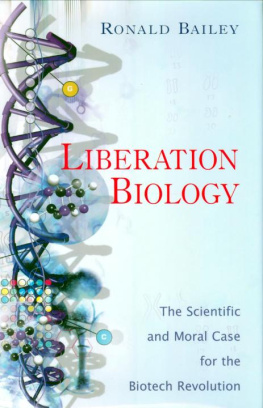
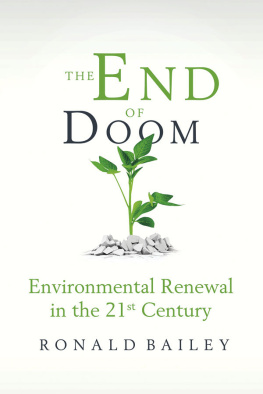
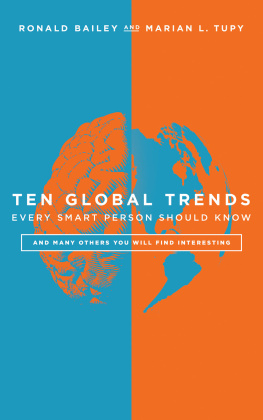
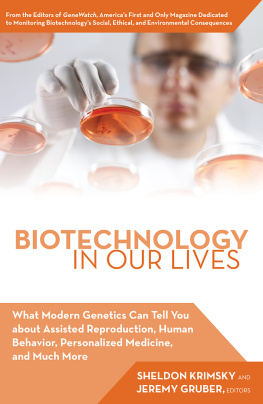

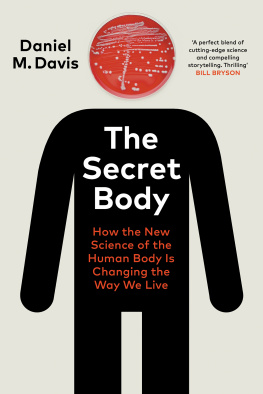
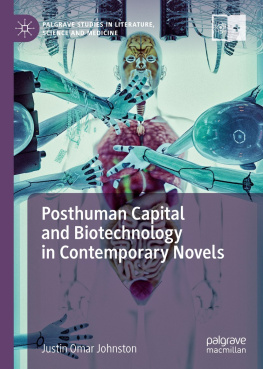
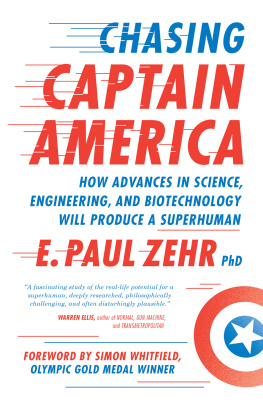
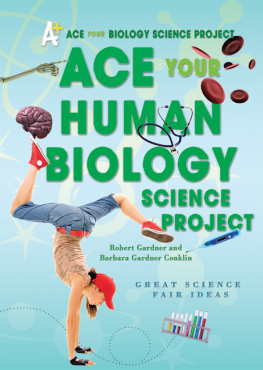
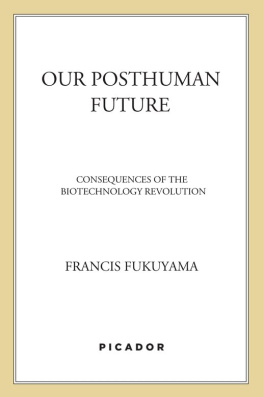
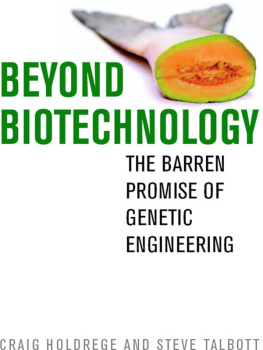


 t 'l could have given this book a proper nineteenth-century descriptive title, it would have been something like Liberation Biology: The Scientific and Moral Case fir the Biotech Revolution; Or, Why You Should Relax and Enjoy the Brave New World.
t 'l could have given this book a proper nineteenth-century descriptive title, it would have been something like Liberation Biology: The Scientific and Moral Case fir the Biotech Revolution; Or, Why You Should Relax and Enjoy the Brave New World.